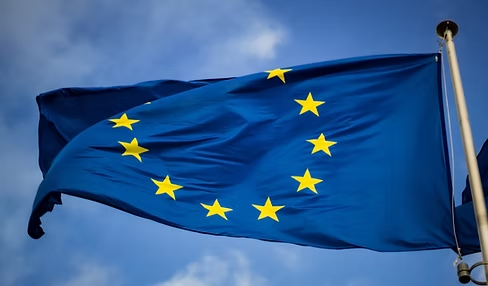EU Recruitment 2025/2026 | Application Guide
EU Recruitment 2025/2026: The European Union (EU) remains one of the most prestigious organizations to work for, offering career opportunities that impact millions of lives across Europe and beyond. The EU Recruitment 2025/2026 exercise provides a structured pathway for talented individuals to join various EU institutions, agencies, and bodies. These institutions seek professionals with diverse backgrounds—from law, economics, and international relations to IT, engineering, finance, translation, and public administration.
For many candidates, landing a role through EU recruitment means more than just a career; it is an opportunity to influence policy-making, contribute to cross-border development, and gain exposure to international best practices. This guide provides an in-depth breakdown of the recruitment process, eligibility criteria, and practical steps to help you secure a role in the upcoming EU recruitment cycle.
Why Work with the European Union?
Before applying, it’s important to understand the value of pursuing a career in the EU system. Some of the major benefits include:
- International Exposure: Work in a multicultural environment with colleagues from all 27 EU member states.
- Career Development: Access to professional training, leadership programs, and cross-departmental mobility.
- Job Security: Most EU positions, once secured, provide long-term contracts with clear career progression paths.
- Competitive Remuneration: Attractive salary packages, allowances, healthcare, and pension schemes.
- Impactful Work: Contribute to policy, governance, diplomacy, trade, law, and humanitarian programs that affect Europe and the world.
Key EU Institutions Recruiting in 2025/2026
The EU operates through a variety of institutions, each with distinct roles. Depending on your career interests, you may apply to one or more of these:
- European Commission (EC): Policy-making and implementation.
- European Parliament (EP): Legislative responsibilities.
- Council of the European Union: Decision-making and coordination among member states.
- Court of Justice of the EU (CJEU): Legal and judicial opportunities.
- European External Action Service (EEAS): Diplomacy and external relations.
- European Central Bank (ECB): Finance, economics, and monetary policy.
- Specialized EU Agencies: Covering areas such as security, environment, health, education, and digital transformation.
Categories of EU Recruitment Opportunities
The EU Recruitment 2025/2026 covers different job categories designed to accommodate a wide range of applicants. These categories include:
- Administrators (AD): Roles in policy, research, law, and program management.
- Assistants (AST): Administrative and technical support positions.
- Contract Agents: Temporary contracts with possibilities of renewal.
- Traineeships/Internships: For students and recent graduates (often 5–6 months).
- Experts/Consultants: Specialized roles requiring advanced technical knowledge.
Eligibility Criteria for EU Recruitment 2025/2026
Before applying, ensure that you meet the basic eligibility criteria. Common requirements include:
Citizenship
- You must be a citizen of one of the EU member states. Some programs may accept applicants from outside the EU under specific agreements.
Educational Qualifications:
- Administrator roles: At least a bachelor’s degree or equivalent.
- Assistant roles: Secondary education plus relevant experience or vocational training.
Language Skills
- Proficiency in at least two EU official languages (most commonly English, French, or German).
Age Limit
- There is no official age cap, but certain programs may favor younger candidates for entry-level positions.
Professional Experience
- Some roles require prior work experience, while graduate trainee programs are open to fresh applicants.
Related Posts:
How to Apply for EU Recruitment 2025/2026
The application process can be competitive, but with proper preparation, you can stand out. Follow this step-by-step application guide:
Research Available Opportunities
Visit the EU Careers Portal https://epso.europa.eu for updated job listings, recruitment exams, and internship announcements.
Create an EU Login Account
Register on the EPSO (European Personnel Selection Office) platform to access application forms and submit credentials.
Complete the Online Application Form
Fill in your personal details, academic background, and work experience. Ensure accuracy, as this will be reviewed during eligibility checks.
Upload Supporting Documents
Prepare and upload scanned copies of your degree certificates, transcripts, identification documents, and proof of language proficiency.
Sit for Pre-Selection Tests
Most applicants must complete computer-based tests (verbal reasoning, numerical reasoning, abstract reasoning, and situational judgment).
Assessment Center Stage
Shortlisted candidates may be invited to an assessment center for interviews, group exercises, written exams, or presentations.
Final Selection and Job Offer
Successful candidates are placed on a reserve list from which EU institutions recruit based on their needs.
Important Dates for EU Recruitment 2025/2026
While exact timelines vary depending on the institution, the general calendar looks like this:
- Application Opening: January – March 2025
- Deadline for Submission: March – April 2025
- Pre-Selection Tests: May – July 2025
- Assessment Center Stage: September – November 2025
- Final Results and Reserve List Publication: December 2025 – Early 2026
Applicants are advised to check the EPSO portal regularly for institution-specific deadlines.
Tips to Succeed in EU Recruitment 2025/2026
Competition is fierce, but the following strategies can improve your chances:
- Start Early: Prepare your documents and apply before deadlines.
- Polish Language Skills: Strong command of at least two EU languages is critical.
- Practice Reasoning Tests: Use online resources to sharpen your cognitive skills.
- Tailor Your Application: Highlight experience relevant to the job description.
- Stay Informed: Follow EU news and policies to stay updated for interviews.
- Network: Connect with current or former EU employees for insights.
Frequently Asked Questions (FAQs)
Can non-EU citizens apply for EU Recruitment 2025/2026?
In most cases, only EU citizens are eligible. However, some programs and agencies open applications to non-EU nationals.
Are internships paid?
Yes, most EU traineeships are paid, covering living expenses and health insurance.
How competitive is the process?
Very competitive. Thousands of applicants compete for limited spots, so preparation is key.
Do I need professional experience to apply?
Not always. Entry-level roles and traineeships welcome graduates with little or no experience.
How long does the recruitment process take?
It can take between 6 to 12 months from application to final appointment.
Conclusion
The EU Recruitment 2025/2026 process is a golden opportunity for individuals seeking a rewarding career in international governance, policy-making, diplomacy, and public administration. While the competition is tough, proper preparation, strong language skills, and a clear understanding of the application steps can set you apart from other candidates.
If you are passionate about shaping Europe’s future and contributing to international development, start preparing now by gathering your documents, sharpening your reasoning skills, and staying updated with EU job postings.
Bookmark this guide and revisit frequently for the latest updates on EU recruitment timelines, eligibility requirements, and application tips.






